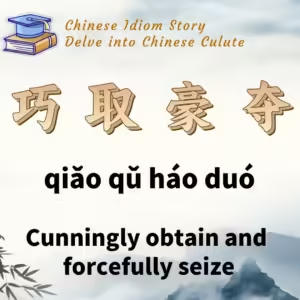
Chinese Idiom: 乘兴而来 (Cheng Xing Er Lai)
English Translation: Coming with Great Excitement
pīn yīn: chéng xìng ér lái
Idiom Meaning: This idiom means to arrive in high spirits or with great enthusiasm, indicating that someone comes with joy and excitement.
Historical Source: Found in Shishuo Xinyu (《世说新语·任诞》) and also mentioned in Jin Shu (《晋书·王澈之传》).
Idiom Story:
Wang Huizhi, the fifth son of the renowned calligrapher Wang Xizhi during the Eastern Jin Dynasty, was born into a prestigious family and often regarded himself as exceptional. His personality was proud and unrestrained, and his lifestyle was quite carefree. Although he held an official position, he spent his days in disheveled attire, merely enjoying the title without attending to any duties, preferring to wander about aimlessly.
On one occasion, while staying at someone else’s residence, Wang Huizhi demanded his servant to plant bamboo in the borrowed courtyard. When the servant pointed out that they would have to leave soon, Wang Huizhi, lost in poetic musings, replied slowly, “I cannot be without it even for a day!” This demonstrated his whimsical nature.
Later, Wang Huizhi resigned from his official post and retreated to a mountain village. One winter night, after a heavy snowfall, he looked out his window to see the bright moonlight and a tranquil scene. The beauty of the night made him long to hear the sound of a guqin (a traditional Chinese string instrument). Remembering his friend Dai Kui, who was skilled at playing the guqin, he commanded his servant to prepare a boat for a nighttime visit.
As the boat glided under the moonlight on the clear river, Wang Huizhi was overjoyed by the stunning scenery that felt almost otherworldly. He eagerly anticipated meeting Dai Kui to enjoy the night together. However, they did not reach Dai Kui’s home until dawn, and by that time, Wang Huizhi felt that his initial excitement had faded. He decided to return home instead. Confused, the servant asked why they would not visit Dai Kui. Wang Huizhi laughed and explained, “I came with excitement, but now that the excitement has waned, there’s no need to meet him.”
Thus, this story led to the idiom “乘兴而来” (coming with great excitement), signifying that one arrives with enthusiasm, only to leave once that enthusiasm has dissipated.






